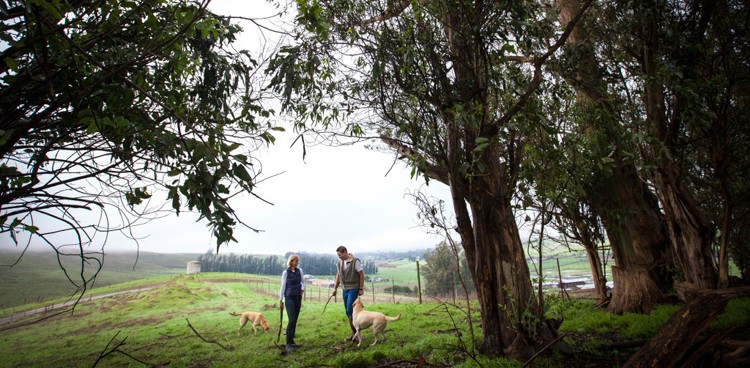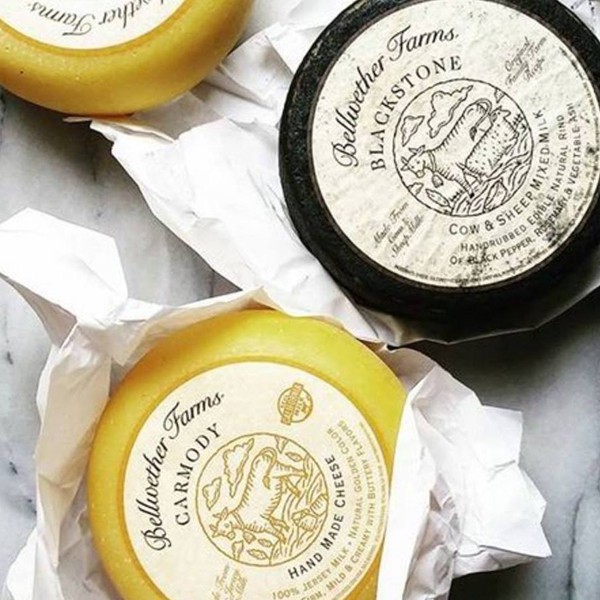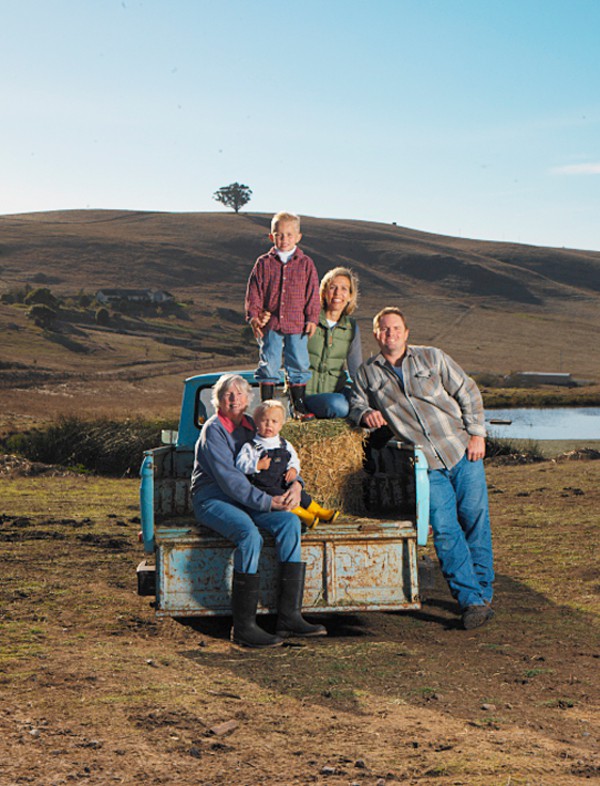
When many think of food insecurity, they recall infomercials of children with bloated bellies in the third world. The issue is prevalent throughout the globe, including here in the US where 1 in 6 Americans face hunger. In 2015, this equated to 16 million food-insecure households—that’s 42 million Americans struggling to feed themselves and their families. At the same time, a third of children in this country are overweight or obese, largely from empty calories from soft drinks and potato chips rather than fruits and vegetables.
One family in our cheese community is making moves to ensure more Americans can put healthy food on the table and children can sustainably learn about what foods best nourish their bodies. The Callahan family, owners of beloved Californian sheep dairy, Bellwether Farms, recently established their nonprofit arm, Bellwether Farms Foundation. One percent of their sales will go to support organizations working on hunger relief and food education.
One Farm Joins the Fight Against Hunger
Inspired by companies with a heart like Tom’s Shoes and Warby Parker, the Callahans wanted Bellwether Farms to be able to identify as a company solving a problem affecting many Americans.
“I fundamentally think that the problem with food, [the] access to food, [the] understanding of food and where it comes from and how it’s produced . . . ultimately impacts me . . . not just as a person, but as a business person,” says Liam Callahan, the patriarch of the Bellwether Farms clan. “To solve this problem, food companies have to be involved in [improving the food system].” Taking up this social cause is a way of deepening work the Callahans have been doing for years, donating excess product to local food banks and cheese wheels to fundraising auctions at local schools.
Callahan explained to culture the projects he hopes to execute to help address America’s hunger issue. One of his priorities is helping with high transportation and distribution costs at food banks. “There is so much surplus food in the country . . . and [food banks] always want food, don’t get me wrong . . . but the problem is the cost of getting it distributed, the trucking needed to get it from point A to point B, the facility needed to store it. That distribution network is an expensive one.” He explained how through his discussions with food banks, he realized they could feed a hungry stomach for only 11 cents a meal—the majority of the cost coming from transporting the donated food. Much of Bellwether Farms Foundation’s funds will go toward this problem, and the Callahans plan to put money back into the various regions and communities that have been enjoying their products.
Another project of interest? Nutrition education. Teaching children about healthy food choices is key, so Callahan emphasizes the need to “[help] them better understand the contrast between real food and fake food.” Community gardens are specifically the tool the foundation looks to support, and indeed studies have shown that teaching youth about cooking and food impacts and improves their diet.

Two of the farm’s award winning cheeses; Carmody, a buttery cow’s milk cheese, and Blackstone, a cow and sheep’s milk blend with savory peppercorns. Photo Credit: Bellwether Farms/Facebook.com
A Historic Farm with Humble Beginnings
For Callahan, the foundation is the natural progression of his family’s work. Their story is one of familial togetherness and a philosophy of constantly saying, “Why not give it a try?” His mother, Cindy, wanted to replicate the peaceful country life she had growing up in Tennessee after raising her children in San Francisco with her husband. An accidental pioneer, her bucolic longing resulted in one of the first sheep dairies in America. When her dream home developed six-foot grasses, she decided sheep were the lawnmowers she needed. “[She] just immediately fell in love with raising them,” says Callahan. “I’m not even 100 percent sure what the qualities were that resonated with her but she enjoyed it a great deal.”
The family had their first lamb in 1986, and by the following spring, their flock grew, luring restaurant greats like Chez Panisse and French Laundry to buy their meat. To keep their restaurants happy, the Callahans made sure they had lamb year-round by having their sheep breed at different times of the year. The system was even more beneficial when Bellwether Farms became a dairy. “We were able to overcome the fact that the sheep only gave milk for only a short period of time simply because we were set up for having newly pregnant and new lambs all year,” says Callahan.
The origins of their dairying were just as coincidental as their lambing beginnings. The Callahans were inspired by a friend who offered the thought of dairying offhandedly: “He said, ‘Boy you’ve got all these sheep out there maybe you could milk them?’” And with that, they milked. At the time, the Callahans didn’t even know sheep’s milk cheese was a possibility: “We were completely oblivious . . . There weren’t labels on every piece of cheese in a cut and wrap store back then. We just assumed everything was cow milk with the lone exception of a chèvre that you get on a warm spinach salad.” Now, Bellwether Farms is dairy-only; as of 2012, the Callahans stopped selling lamb meat to focus on their cheesemaking enterprise.
Callahan still holds his time at the vat dear but as he turned 50 last year, he wanted to add something new. “I think you still need new things that bring different levels of satisfaction to you,” he says. For him, Bellwether Farms Foundation is the answer, and the need for this new work is unquestionable and uncontentious.
“I’m not taking some crazy stand on what’s happening with the Earth or whether we need to do something with immigration. I’m not going in there. Let’s just feed some people and help people understand the food system better!”
Feature Photo Credit: Bellwether Farms/Facebook.com
Kara Kaminski-Killiany
Kara is a Michigan cheesemaker, writer, and freelance behavioral economist who can’t get enough bloomy rind cheeses that perfectly melt just below the rind. She is happiest when tending goats, discovering unique cheese flavors from new sources, and decoding the puzzles of human behavior.




